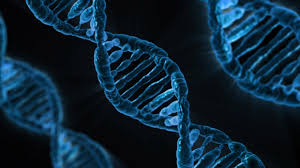Two years after my father and I participated in Dr. Ptacek's study, I received the following note from the lab coordinator:
"Recently, we came across some very interesting findings within your family. These findings may lead to the discovery of the first ever night owl sleep gene."
Needless to say, I was THRILLED. My longstanding belief that my extreme night owl sleep pattern has a genetic basis was being proven, SCIENTIFICALLY.
The coordinator asked for more of my family members' blood to examine. Excited and encouraged, I urged my sister to send in her blood sample (she refused, however).
Shortly thereafter, I got sidetracked with a move for work. Eventually I called the lab to inquire about the details of my family's blood work but they could not provide results for individuals. Although disappointed, I understood that our contributions were for the research study and not for personal diagnosis.
The representative did point me to findings published about the study by Dr. Ptacek and Dr. Fu, which ended up focused on Advanced Sleep Phase Syndrome (like it sounds, it's the opposite of Delayed Sleep Phase Syndrome). Below are a couple of paragraphs from an article published by UCSF about the study - the underlined sentences are encouraging for DSPS sufferers:
"The earliest-rising morning larks and the most extreme night owls may have a reason to blame genes - sometimes just one gene -- for their being out of sync with the rest of us. Husband and wife research team Louis Ptacek and Ying Hui Fu, now at UCSF, identified a mutant gene from sleep-deprived members of one Utah family in which many of these rare birds roost. The mutated gene is all that is necessary to shift the gears within the biological clocks of affected family members, causing them to go to bed very early and to wake up very early, too.
It "was the first sleep-disorder-causing gene ever isolated. There will be more to come. Fu and Ptacek are hot on the trail of a mutant gene that causes a similar inheritance pattern in another family with the opposite problem - affected family members are driven to go to bed and wake up later and later. In all, the researchers now are tracking 60 families in which the inheritance patterns of sleep-phase disorders suggest that one or very few gene mutants may be responsible. Their research is shedding light on how molecular gears and springs work together inside cells to run our biological clocks. And although unwilled wee-small-hour wakefulness often disrupts the lives of those whose natural sleep times are outside the norm, Ptacek and Fu suggest that with a better understanding of sleep cycles comes hope on the horizon for relief in the form of new drug treatments."
Ptacek and Fu are continuing their circadian sleep disorders research - here's a recent article about their study regarding irregular sleep schedules and seasonal depression.


